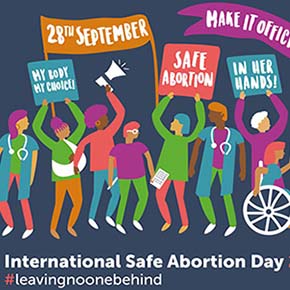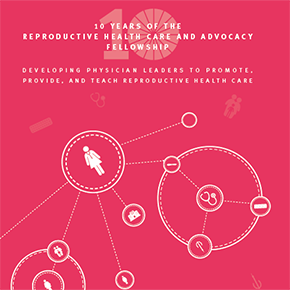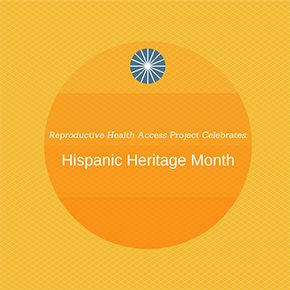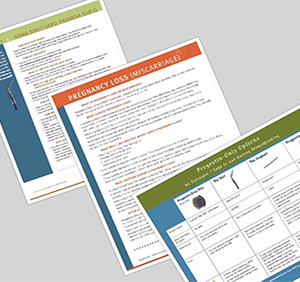Nov 06

Help Us Protect Access to Sexual and Reproductive Health Care Today!
 On September 28th RHAP is joining forces with more than 1,200 organizations worldwide to organize actions in support of the right to safe abortion. This international day of action is built around four principles: 1) access to safe and legal abortion is a human right; 2) human rights need to be respected, protected, and fulfilled; 3) no one’s health or life should be at risk because abortion services are not available; and 4) abortion should not be restricted, prohibited, or criminalized.
On September 28th RHAP is joining forces with more than 1,200 organizations worldwide to organize actions in support of the right to safe abortion. This international day of action is built around four principles: 1) access to safe and legal abortion is a human right; 2) human rights need to be respected, protected, and fulfilled; 3) no one’s health or life should be at risk because abortion services are not available; and 4) abortion should not be restricted, prohibited, or criminalized.
RHAP’s work is centered around fulfilling these 4 principles. To mark international safe abortion day in the United States, RHAP will be asking you to join us in letting our state and federal officials know what still needs to be done in the United States to ensure that everyone, everywhere is able to access abortion safely and with respect.
Mark your calendars, follow us on social media and raise your voice on September 28th!
 The Reproductive Health Care and Advocacy Fellowship was launched in 2007 in New York City, and has later expanded to multiple training sites in NYC, Boston, and soon Michigan. In honor of the 10th anniversary, we are recognizing the impact of two very important members of our community, Dr. Honor MacNaughton will receive the Trailblazer Award and Dr. Martha Simmons the Clinician Advocacy Award.
The Reproductive Health Care and Advocacy Fellowship was launched in 2007 in New York City, and has later expanded to multiple training sites in NYC, Boston, and soon Michigan. In honor of the 10th anniversary, we are recognizing the impact of two very important members of our community, Dr. Honor MacNaughton will receive the Trailblazer Award and Dr. Martha Simmons the Clinician Advocacy Award.
Dr. Honor MacNaughton was RHAP’s first fellow and is now the Associate Residency Program Director at Tufts University Family Medicine Residency and practices primary care at the Cambridge Health Alliance, where she developed an abortion-training program for the family medicine residents and created an outpatient clinic that offers reproductive health procedures, including abortion. In 2014, she started the Boston site of the Reproductive Health Care and Advocacy Fellowship and now oversees the program nationally.
Dr. Martha Simmons, the 2015 – 2016 Reproductive Health and Advocacy Fellow, now practices at the Institute for Family Health where she is a core leader. She is active in the New York State Academy of Family Physicians, serving on their Advocacy Commission, and as a RHAP liaison. Martha frequently speaks about reproductive health at professional meetings on the local, regional, and national level.
Over the decade, we have trained more than 20 family physicians like Martha and Honor, who are committed to changing the landscape of reproductive health care, with all of them providing access to birth control methods and miscarriage care, and 67% of them providing abortion care in their communities!
Join us on October 26th from 6:30 pm – 9:00 pm at The Center, 208 West 13th Street, NYC. Help us raise funds to support the expansion of the fellowship! Everyone deserves access to comprehensive reproductive health care and you can help us accomplish that by supporting the next generation of clinicians.
Click here to reserve your tickets, become a sponsor, or to make a donation. For more information, please contact Rosanna Montilla-Payano at rosanna@reproductiveaccess.org.
 September 15th to October 15th is Hispanic Heritage Month; a time that celebrates the contributions and achievements that Latinx and Hispanic Americans have contributed to American heritage through pop culture, politics, education amongst a variety of other areas of our society.
September 15th to October 15th is Hispanic Heritage Month; a time that celebrates the contributions and achievements that Latinx and Hispanic Americans have contributed to American heritage through pop culture, politics, education amongst a variety of other areas of our society.
Latinx communities have been fighting alongside other communities of color throughout the history of the reproductive justice movement, highlighting injustices that have been committed such as forced sterilization and eugenics programming against Puerto Ricans and Mexicans and anti-immigrant discrimination. The most vulnerable of this community still face the backlash of these harsh legal restrictions such as a lack of access of sexual health education, access to reproductive health services and contraception through barriers that have been institutionalized purposefully, to control their reproductive freedoms and basic human rights.
Throughout the next five weeks, the Reproductive Health Access Project will be posting blogs on our social media and website that illustrate trailblazing Hispanics and how they play a part in the history of reproductive health and justice. We will be looking at how they combat institutionalized racism, systemic oppression and how they lent their voices in order to uplift their communities for the right to access basic health care.
 Last month, we announced that 33 of RHAP’s patient education materials were fully translated and made available on our website in Vietnamese. We’re excited to share that these materials are now officially available in Hindi as well. In addition to Hindi, the bulk of our patient education sheets are now available in English, Spanish, Simplified Chinese, Traditional Chinese, and Vietnamese!
Last month, we announced that 33 of RHAP’s patient education materials were fully translated and made available on our website in Vietnamese. We’re excited to share that these materials are now officially available in Hindi as well. In addition to Hindi, the bulk of our patient education sheets are now available in English, Spanish, Simplified Chinese, Traditional Chinese, and Vietnamese!
RHAP has also been working hard on three brand-new patient education sheets this summer. Our Research Fellow, Dr. Cynthia Calixte, worked with us to write, field-test, and finalize the following new resources:
As always, RHAP aims to develop patient education materials and clinical tools that are comprehensive, easy to read, and accessible for all audiences. Our materials are rigorously field-tested with both clinicians and patients, and our edits are informed by user feedback. They are all available on our website for free download, or purchase hard copies for your home, school, and clinic in our store.
Your gift allows us to train and support health care providers across the United States so they can offer patients compassionate and comprehensive care.
Nov 06
